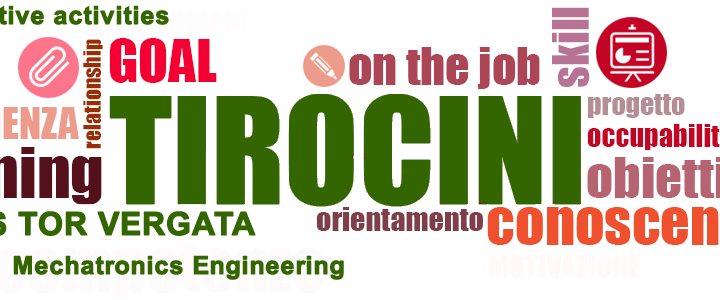“Formative Activities” (FAs) are mandatory didactic activities where students are followed by tutors on specific assignments. Experimental, numerical, and theoretical activities may be considered based on the tutor’s knowledge, skills, and availability.
To start a Formative Activity, the student must contact a university tutor, chosen among the Bachelor in Engineering Sciences professors, asking for his/her support in undertaking this task. At the end of the assignment, the tutor chosen will sign off the “Formative Activity Form” stating the acquisition of the related credits.
The credits of FAs are acquired without a mark.
Internal and external internships (managed by the related university office) may cover FAs as well as ERASMUS activities.
FAs consist of 3 credits (=75 hours) of assisted work under the tutor’s responsibility or covered by the internship. The studies and any other results from FAs, in terms of data, experiments, or skills, may be used to prepare for the final exam. In that case, the student can also ask the same tutor to be his/her supervisor in the final exam.
The final exam involves acquiring 6 credits (=150 hours) which must be added to the FAs. A student is accepted to the graduation session if one professor of the Bachelor in Engineering Sciences signs off the form (by the central secretariat) where that professor states that the candidate is able to undertake the final exam. For the final exam, the student may provide a written document (Thesis) and must provide a presentation that has been previously approved by a professor of the Bachelor.
Typically, the final mark of the Graduation Commission (up to 7 points maximum) depends on the typology and quality of the documents the students provide at the final exam. Students who provide the presentation without a written document (Thesis) rarely earn more than 1-2 points;
A bibliographic Thesis can get up to 3-4 points, whereas research studies with a written Thesis may aspire to the maximum number of points.
It is a normal procedure, but not a mandate, to associate an FAs and the final exam to the same professor, who will be the tutor of the FAs and the supervisor of the final exam. Considering the high number of work hours required (75+150), if a student opts for this choice, it is highly recommended to contact the desired professor promptly, 4 to 6 months before the expected graduation date.

 UNIVERSITA' DEGLI STUDI ROMA "TOR VERGATA"
UNIVERSITA' DEGLI STUDI ROMA "TOR VERGATA"











